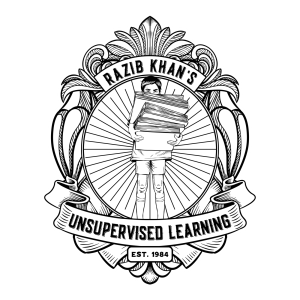
- Podcast Features
-
Monetization
-
Ads Marketplace
Join Ads Marketplace to earn through podcast sponsorships.
-
PodAds
Manage your ads with dynamic ad insertion capability.
-
Apple Podcasts Subscriptions Integration
Monetize with Apple Podcasts Subscriptions via Podbean.
-
Live Streaming
Earn rewards and recurring income from Fan Club membership.
-
Ads Marketplace
- Podbean App
-
Help and Support
-
Help Center
Get the answers and support you need.
-
Podbean Academy
Resources and guides to launch, grow, and monetize podcast.
-
Podbean Blog
Stay updated with the latest podcasting tips and trends.
-
What’s New
Check out our newest and recently released features!
-
Podcasting Smarter
Podcast interviews, best practices, and helpful tips.
-
Help Center
-
Popular Topics
-
How to Start a Podcast
The step-by-step guide to start your own podcast.
-
How to Start a Live Podcast
Create the best live podcast and engage your audience.
-
How to Monetize a Podcast
Tips on making the decision to monetize your podcast.
-
How to Promote Your Podcast
The best ways to get more eyes and ears on your podcast.
-
Podcast Advertising 101
Everything you need to know about podcast advertising.
-
Mobile Podcast Recording Guide
The ultimate guide to recording a podcast on your phone.
-
How to Use Group Recording
Steps to set up and use group recording in the Podbean app.
-
How to Start a Podcast
-
Podcasting
- Podcast Features
-
Monetization
-
Ads Marketplace
Join Ads Marketplace to earn through podcast sponsorships.
-
PodAds
Manage your ads with dynamic ad insertion capability.
-
Apple Podcasts Subscriptions Integration
Monetize with Apple Podcasts Subscriptions via Podbean.
-
Live Streaming
Earn rewards and recurring income from Fan Club membership.
-
Ads Marketplace
- Podbean App
- Advertisers
- Enterprise
- Pricing
-
Resources
-
Help and Support
-
Help Center
Get the answers and support you need.
-
Podbean Academy
Resources and guides to launch, grow, and monetize podcast.
-
Podbean Blog
Stay updated with the latest podcasting tips and trends.
-
What’s New
Check out our newest and recently released features!
-
Podcasting Smarter
Podcast interviews, best practices, and helpful tips.
-
Help Center
-
Popular Topics
-
How to Start a Podcast
The step-by-step guide to start your own podcast.
-
How to Start a Live Podcast
Create the best live podcast and engage your audience.
-
How to Monetize a Podcast
Tips on making the decision to monetize your podcast.
-
How to Promote Your Podcast
The best ways to get more eyes and ears on your podcast.
-
Podcast Advertising 101
Everything you need to know about podcast advertising.
-
Mobile Podcast Recording Guide
The ultimate guide to recording a podcast on your phone.
-
How to Use Group Recording
Steps to set up and use group recording in the Podbean app.
-
How to Start a Podcast
-
Help and Support
- Discover

Razib Khan's Unsupervised Learning
Science:Life Sciences

Jacob L. Shapiro: geopolitical pasts, present and futures
Razib next asks Shapiro for his take on globalization in the context of the Ukraine-Russia conflict. Shapiro argues that we are truly moving into a multipolar world that is more similar to what occurred in the 1890’s when there was a balance of power in Europe. Shapiro points out that that too was a time of economic and cultural tumult and creativity, Europe’s “Belle Epoque.” For him, this earlier period of globalization illustrates both the promise and peril of a geopolitically balanced world where fates were interlaced by complex networks of free trade. Shapiro’s main worry is a “Black Swan” event with the power to trigger a global conflict, a freak event analogous to the assassination of Archduke Franz Ferdinand by a Serbian radical that ignited World War I. He cautions that a world with more balance of power between nations and leaders, unpredictable decisions grow more likely.
Shapiro also argues strongly that the US is under a misimpression in terms of its power and influence in a world where other powers are rising. He also greets the idea that demographics is destiny with skepticism, pointing out that in the 1930’s Germany’s demographic profile did not indicate youthful bellicosity. Though Shapiro acknowledges the headwinds that demographics will present to both China and Europe, he argues we shouldn’t underestimate their future possibilities.
The conversation closes with the possibility that instability and reorganization will result in a ferment of cultural creativity that might match the decades around 1900. Though we are in for a great geopolitical shift, Shapiro sees opportunities and promise in the US, which still remains a dynamic society and a magnet for talent. Finally, he tells us to keep an eye on Central Asia as a locus for instability and change due to both location and authoritarian governments.
More Episodes
 2025-07-18
2025-07-18
 2025-05-21
2025-05-21
 2025-05-11
2025-05-11
 2025-05-02
2025-05-02
 2025-03-28
2025-03-28
 2025-03-10
2025-03-10
Create your
podcast in
minutes
- Full-featured podcast site
- Unlimited storage and bandwidth
- Comprehensive podcast stats
- Distribute to Apple Podcasts, Spotify, and more
- Make money with your podcast
It is Free
- Privacy Policy
- Cookie Policy
- Terms of Use
- Consent Preferences
- Copyright © 2015-2025 Podbean.com



